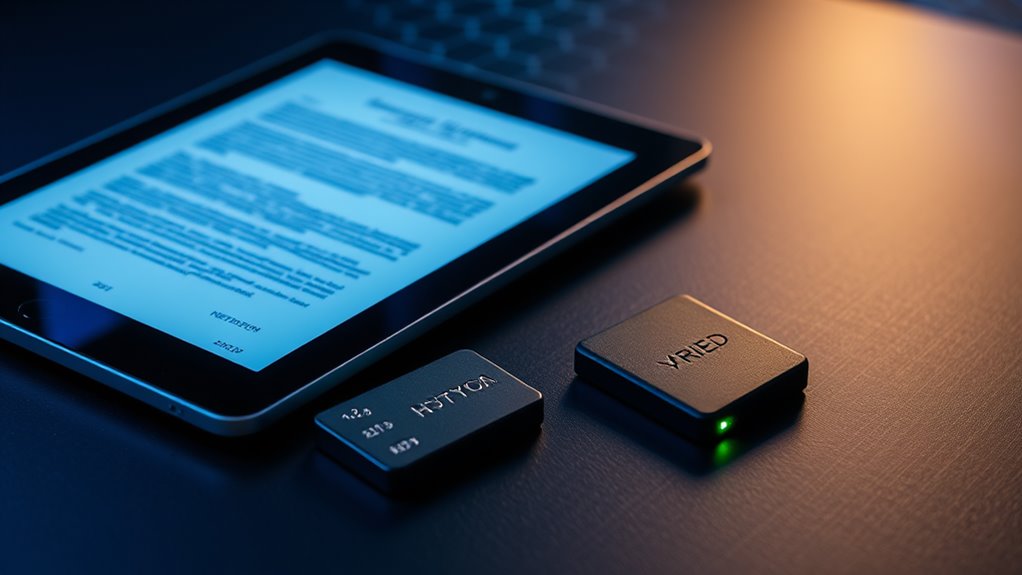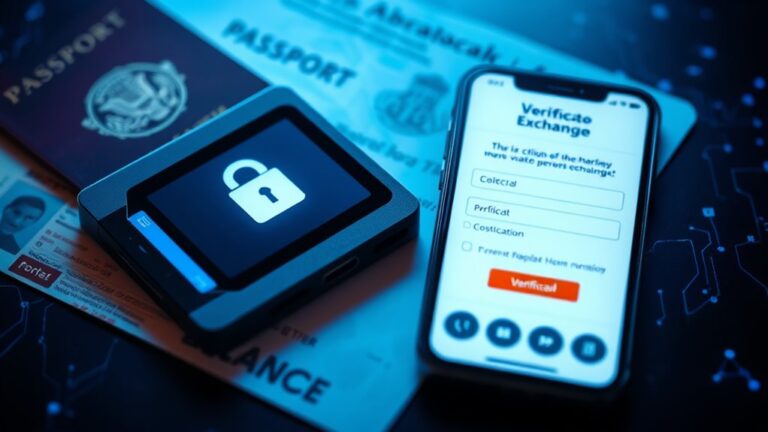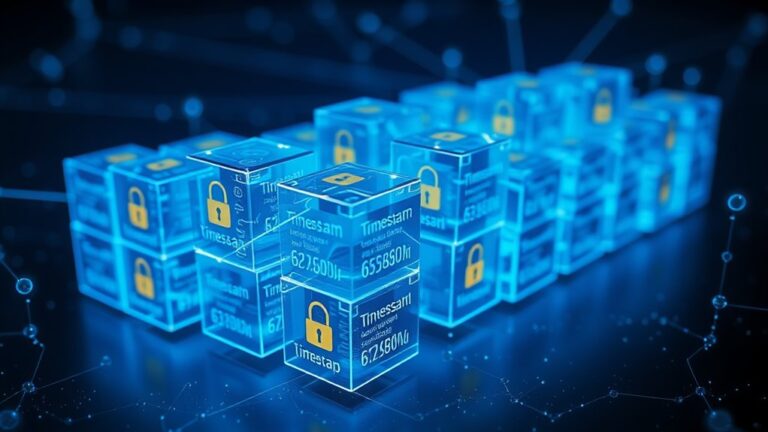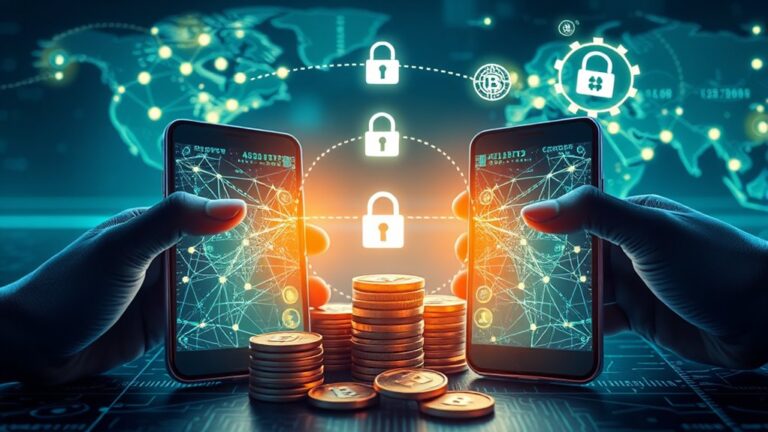What Is a Digital Signature?
Note: This post may contain affiliate links, and we may earn a commission (with No additional cost for you) if you purchase via our link. See our disclosure for more info. The gold and crypto world is constantly changing. This is not financial, investment, legal, or professional advice. So, please verify the information on the gold and cryptocurrency provider’s websites.
A digital signature is like an electronic stamp that verifies who sent a message and keeps it safe from prying eyes. Think of it as your online autograph, but way cooler. It uses complicated math—cryptography, if you want to get technical—to guarantee that what you sent hasn't been messed with. It's designed to be secure and trustworthy, especially in important transactions. Want to know how it's made or the different types? Stick around!
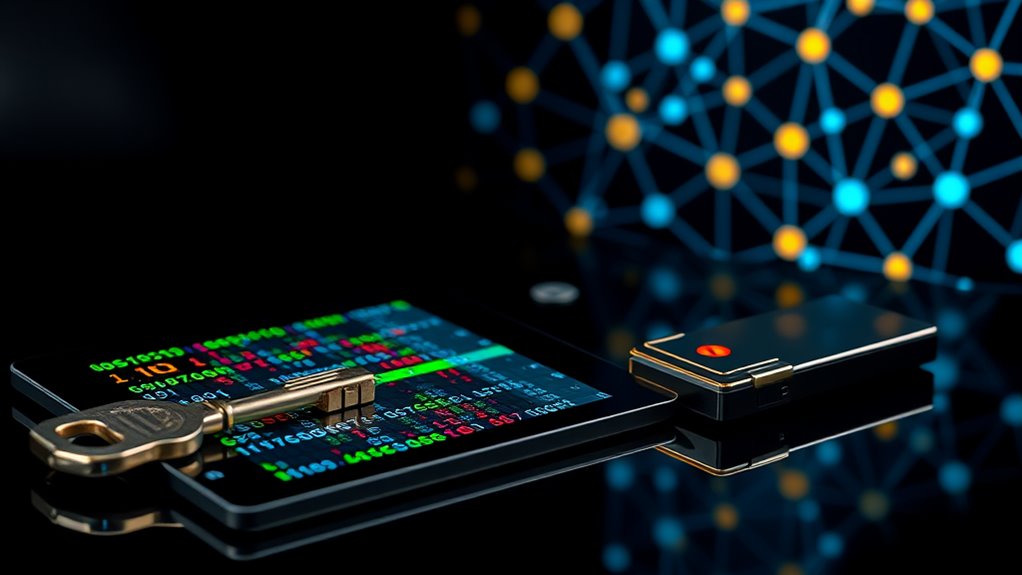
Digital signatures are like the digital world's version of a handwritten autograph—only way more secure and a lot less messy. They're not just fancy doodles; they're electronic authentication stamps that confirm your message is legit and hasn't been tampered with. Think of them as the secret handshake of the internet, built on cryptography.
By combining cryptographic hash functions, private/public key encryption, and digital certificates, digital signatures guarantee that the data really came from the signer and hasn't been altered. It's a bit like putting a lock on your diary, but way cooler. Digital signatures must be part of application data to be effective. They ensure data privacy and prevent unauthorized access, functioning similarly to a handwritten signature for paper documents. In cryptocurrency systems, these signatures form the backbone of security, validating transaction authenticity without requiring trusted intermediaries.
There are various flavors of digital signatures. You've got the simple ones, like scanned images of your signature, which are basically fine for low-stakes business. Then there are standard ones that use public key infrastructure (PKI). Advanced ones can even detect if someone has tried to mess with the document after the fact.
And don't forget the qualified digital signatures, the heavyweight champions that are legally recognized across many jurisdictions. These are the gold standard for important documents.
Key features? Oh, they're packed with them. Digital signatures guarantee data integrity, so if anyone tries to pull a fast one, you'll know. They also provide non-repudiation, meaning you can't just deny you signed something. That's right—no backing out. Plus, they verify the sender's identity. Legal compliance? Covered—these signatures meet standards like HIPAA and GDPR.
The process is pretty straightforward. First, create a hash of the message. Next, encrypt that hash with your private key. Send it along with the message, and voilà! The recipient can decrypt it, check the digests, and confirm everything is on the up and up.
Frequently Asked Questions
Are Digital Signatures Legally Binding in All Countries?
Digital signatures aren't a universal “yes” when it comes to legality. Some countries fully embrace them, like the U.S. and EU, while others? Not so much. The rules vary.
In India, they're legit thanks to the IT Act. Japan's on board too.
But don't get too comfy; some regions have specific requirements that make things tricky. So, while they're binding in many places, it's not a blanket rule. Confusing, right?
How Do Digital Signatures Differ From Electronic Signatures?
Digital signatures and electronic signatures? They're not the same, folks.
Digital signatures are like the VIPs of the signing world—secure, encrypted, and legally recognized across many countries. They use fancy cryptography to confirm identity and document integrity.
On the other hand, electronic signatures are the casual crowd—quick and easy, but lacking that robust legal weight. Sure, they get the job done, but don't expect them to impress in high-stakes situations.
What Are the Main Benefits of Using Digital Signatures?
Digital signatures offer a boatload of benefits.
First off, they're tamper-proof, so good luck messing with that document once it's signed. They save time—no more waiting weeks for approvals.
Plus, the cost savings are real. No paper, no ink, no postage.
And let's not forget the legal side; they're globally recognized. So, you can sign from anywhere without worrying about authenticity.
It's efficient, secure, and frankly, a no-brainer in today's digital age.
Can Digital Signatures Be Forged or Hacked?
Yes, digital signatures can definitely be forged or hacked.
It's like giving a thief a master key to your digital world! From high-tech AI tools to simple copy-paste tricks, forgers have plenty of methods.
They'll even snag your private key if you're not careful. It's a wild west out there!
What Technology Underpins Digital Signature Creation and Verification?
Digital signatures rely on public key cryptography.
It's a fancy term for using two keys—one private, one public. The private key is like your secret diary key. Only you can write in it. The public key? That's for everyone else to read your notes.
Hashing algorithms, like SHA-256, turn documents into unique strings. If someone changes the document, poof! The signature's invalid.

